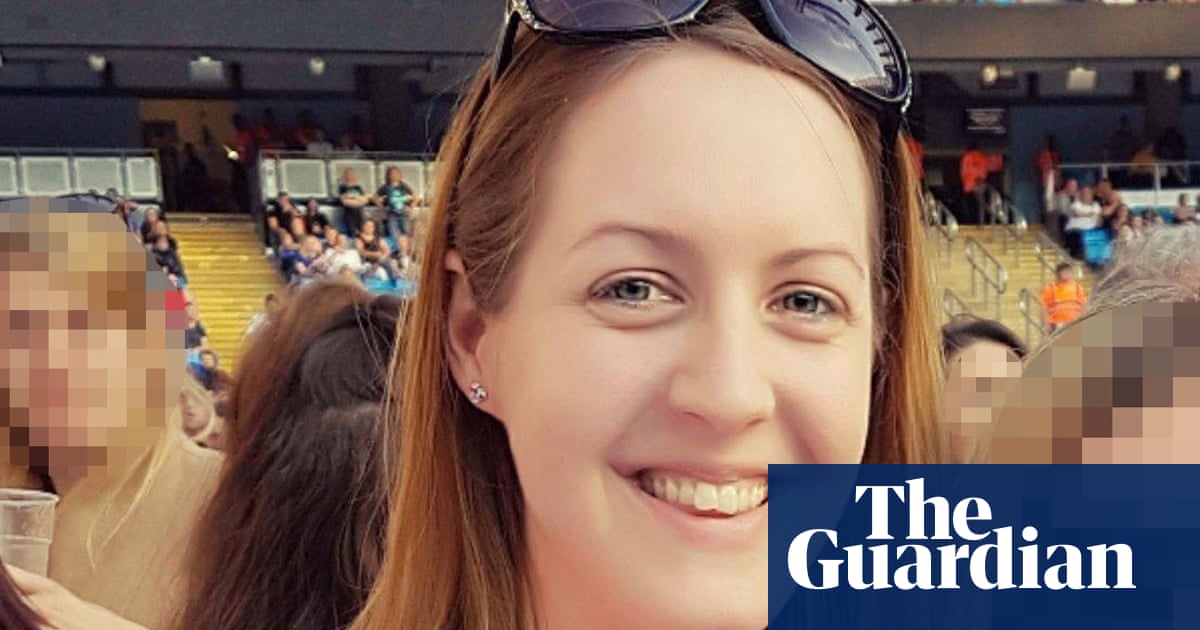
An anaesthetist who had been drinking before an emergency caesarean that led to the death of a British woman should serve the maximum three years in jail if convicted and should be banned from working as a doctor, a French prosecutor has demanded.
Helga Wauters is on trial in Pau, south-west France, for the manslaughter of Xynthia Hawke in 2014. She is accused of starving Hawke of oxygen for up to an hour after pushing a ventilation tube into the wrong passageway.
Orlane Yaouang, prosecuting, described the scene in the operating theatre when Hawke turned blue as “carnage” and spoke of the “surreal situation” in which the panicked hospital staff called the emergency services.
“Some cases mark the spirit more than others. This is one I will not forget. I was at first astonished then troubled,” Yaouang told the court. “Helga Wauters should never have been in the operating theatre. How could this anaesthetist, who has admitted herself she had a chronic, severe problem [with alcohol] for years, find herself in an operating theatre? The family is asking this question and it’s a legitimate question.”
Yaouang said nobody at the maternity hospital in Orthez, where the Belgian-born Wauters had started work 10 days before the tragedy, appeared to have checked her references. If they had, they would have discovered she had been dismissed from two previous jobs for alcohol-related problems.
By the time she arrived in France in 2014, Wauters was “in freefall”, the prosecutor said. “She would crash to the ground, but what is unforgivable is that she should take Xynthia Hawke with her.”
Hawke, 28, from Somerset, was expecting her first child with her partner, Yannick Balthazar, 39, and had organised for a natural birth at the clinic. On 26 September 2014, when she was several days overdue and labour was increasingly painful, doctors decided to carry out an urgent caesarean and Wauters was called in to administer a general anaesthetic.
The court was told that Wauters pushed the ventilator tube into Hawke’s oesophagus instead of her trachea and failed to react when Hawke woke up, vomited, shouted in pain and then went into cardiac arrest and stopped breathing.
The baby, a boy, was born healthy but Hawke never regained consciousness and died in hospital four days later.
Wauters blamed a faulty respirator, but experts told the court they found the machine to be in working order.
Yaouang said the operation became “a nightmare” and Wauters “from the beginning” had not correctly ventilated the patient. “[Hawke] woke up, she shouted ‘it hurts, it hurts,’ she tried to touch her wound, she vomited … the patient was sick and she [Wauters] did nothing,” the prosecutor said. “The emergency doctor called said [Hawke] was a deathly colour, she was grey, with blue extremities. Helga Wauters continued to ventilate her with a balloon attached to nothing.”
Yaouang said Wauters’ drinking had raised alarm bells at hospitals where she previously worked in Belgium. “In five years she went from a brilliant anaesthetist to an anaesthetist who shouldn’t be in an operating theatre. She has to drink so as not to shake. She has been asked to leave an operating theatre because she was drunk.”
Wauters told investigators she had been drinking on the day of Hawke’s caesarian but insisted she was not drunk. She was about to be dismissed by the clinic after alcohol-related concerns about her “competence and professional behaviour”. A letter announcing the imminent end of her contract was found in the apartment she had moved into a month previously, along with 14 empty vodka bottles. Wauters told police she drank vodka mixed with water to stop her hands trembling.
Yaouang said she accepted that alcoholism was an illness, but added:“Helga Wauters knew that she was exposing her patients to the risks caused by her own condition. As a doctor she exposed other people to death. As a doctor you cannot, must not, put people in danger, and this is what she did. She should have eased suffering but she caused it.”
In a relatively short pleading, Antoine Vey, Wauter’s defence lawyer, said his client was “facing up to a tragedy for which she is responsible” but she had been “stressed, under pressure, isolated and alone” at the time of the tragedy.
“From the beginning Helga Wauters has had regrets and thoughts for the family. She was not performing to her best ability, but she doesn’t deserve to be treated like she is less than nothing. She has been accused and treated in an extremely violent manner,” Vey said.
He added: “Helga Wauters cannot be reduced to one act, to her addiction. She is someone who is shy, sensitive, fragile and she is very ill. Prison would be useless. It’s a political message. We have to break the cycle of combative justice, violent justice, for a justice that listens.”
In a dramatic moment at the end of the trial, Wauters, 51, who had exercised her right to remain silent during the hearing, decided to speak. Taking the stand, she addressed the bench quietly and hesitantly, with long silences.
“I have an alcohol problem,” she said. “I would like to express my condolences and say how sad I am, but I don’t have the words to say, I don’t know how to express my pain. One day I would like to be useful to society.”
Hawke’s parents, Clare and Fraser, travelled from Somerset for the trial saying they wished to “learn the truth” of what happened, after six years waiting for the case to come to trial. Afterwards, they said they were shocked by the evidence, but also relieved.
“We have heard the truth, we knew there would be some very ugly things, but we have been waiting for this day for a long time. We have listened to the truth, now we can go away and talk about it and try to get on with our lives,” Fraser Hawke said.
He said he hoped Wauters would feel the “full force of the law”, but he added: “I hope Madame Wauters can heal her illness and get better, that she can do this. She is alive and she has a future; my daughter is dead.”
The verdict will be given on 12 November.











